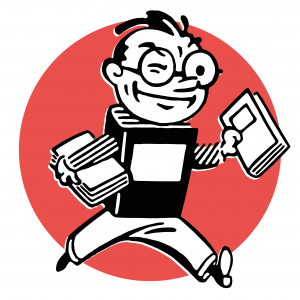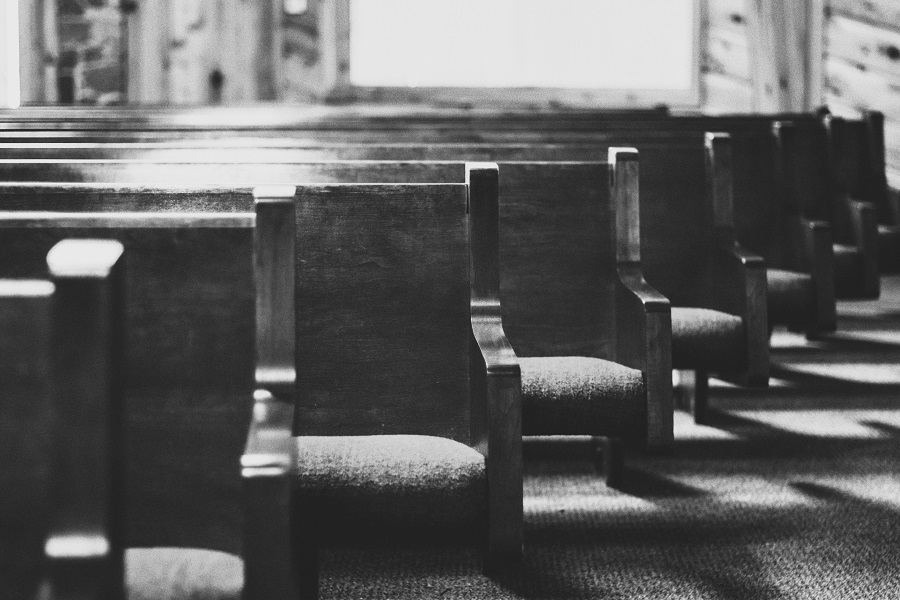One good reason to travel around America is to meet American people, all the more so if you’re one of them yourself. I went out West for ten days and rediscovered what I always knew, that our people don’t mind talking about themselves. You call a cab at 5 a.m. in Flagstaff and a cheerful guy pulls up at your hotel and you ask him how his day is going — “Fine,” he says, “I’m on the midnight shift and I love to see the sun come up.”
“You from here?” No, he’s from Boston, he came out here to help his son who owns the cab company, and he loves Arizona, the climate relieves his arthritis. “So what did you do back in Boston?”
In Europe, this question might raise hackles, like asking, “What’s your annual income?” but he doesn’t mind. He’s a retired Baptist minister. And now the door opens wide — you’ve got yourself a good conversation all the way to the airport.
He asked if I had come out to see the Grand Canyon. Yes, indeed. The day before, I got up at 5 a.m. and hiked over to the South Rim and stood in the dark in the midst of strangers as the eastern sky lightened and it was like church except no singing and no handshakes. The light dawns and Creation appears, six million years of rock, the mighty Colorado below, the underlying beauty of our little planet home, the silent fellow tourists around us, whispers of German and Swedish and Japanese, the canyon walls turning reddish orange, and you stand gazing down for an hour or two and I resolved to give up regret, which is merely self-pity, and to embrace what is true, namely love and kindness, the vocation of cheerfulness, the dedication to the day, this day, each hour. And then I went to the café in the Bright Angel Lodge and had oatmeal and coffee.
A man stopped at my table who recognized me from my radio days. “Have a seat,” I said. He’s from Ohio, retired high school English teacher. Like everyone my age, he’s worried about young people. “They’re so busy with sports and activities and social media and video games and whatnot, it got so I couldn’t assign reading, they just didn’t have time for it.”
“We were lucky to be born when we were,” I say. We had the advantage of boredom, which led us to become readers. And we launched into memories of our long-ago youth.
I came back to New York Saturday and Sunday morning in church, we sang, “When from bondage we are summoned out of darkness into light, we must go on hope and patience, walk by faith and not by sight,” and the next phrase, “Let us throw off all that hinders” struck home because we’ve cleaned out boxes of stuff recently, including a disaster of a novel I was glad to see disappear, and the next verse about Jesus leading us by the hand through a barren desert, reminded me of standing at sunrise looking down into the Canyon.
I didn’t go there to study geology. What I know about rock formations you could put in a grasshopper’s left nostril. Like the people around me, I was there to be with the Lord. I felt in bondage to the past, a common phenomenon when you have so much of it, bondage to Midwestern irony, a dryness, a refusal of joy. Or maybe it comes from my evangelical upbringing, a separatist tendency, an aloofness, the elitism of the redeemed and enlightened, which leads naturally to a sort of brittle satire. You look at the morning paper and all of your biases come to attention.
A person needs to break through this armor. I see the refugee kids from Ecuador selling candy on the subway platforms in midtown Manhattan and the heart absolutely breaks. Families have fled to America for simple survival and it’s more than New York can handle but New York still opens its heart to them. I see the videos on Facebook of my Vietnamese great-nieces in Ho Chi Minh City and the armor cracks. I stand in the dawn of Creation and am overwhelmed. Life is good, praise the Lord, but a criminal billionaire has exploited the resentments of millions and is out to destroy the republic. This must not happen, people. It simply must not.








